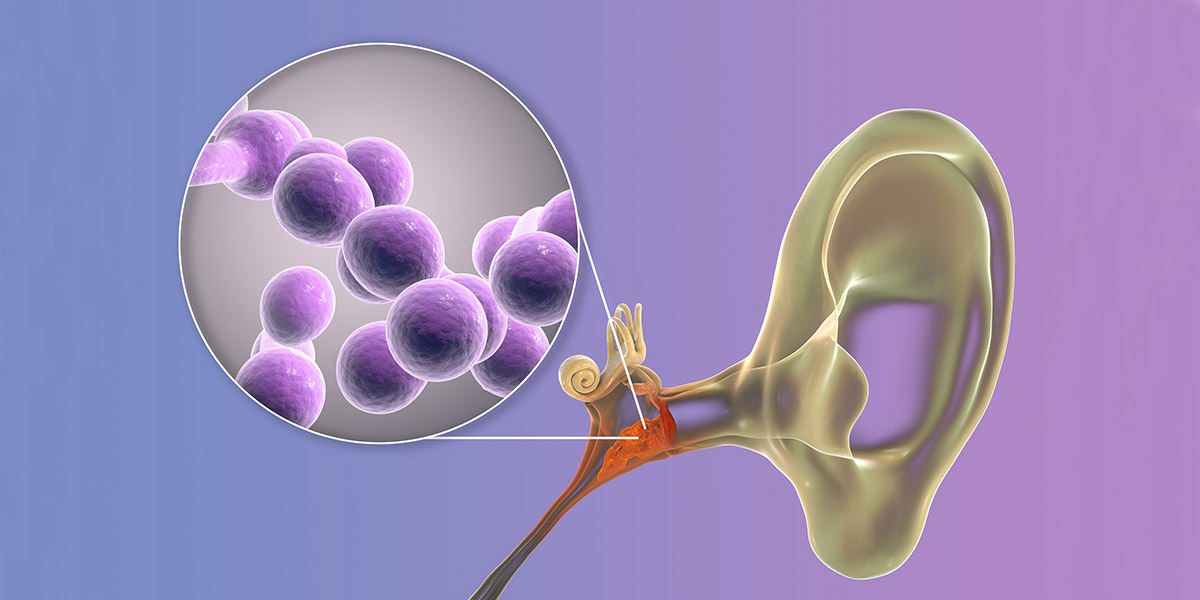
Otitis Media
Otitis media refers to inflammation of the middle ear. When infection occurs, the condition is called acute otitis media. Acute otitis media occurs when a cold, allergy, or upper respiratory infection, and the presence of bacteria or viruses leads to the accumulation of pus and mucus behind the eardrum. This causes earache and swelling.
When fluid forms in the middle ear, the condition is known as otitis media with effusion. This occurs in a recovering ear infection or when one is about to occur. Fluid can remain in the ear for weeks to many months. When a discharge from the ear persists or repeatedly returns, this is sometimes called chronic middle ear infection. Fluid can remain in the ear up to three weeks following the infection. If not treated, chronic ear infections have potentially serious consequences such as temporary or permanent hearing loss.
Symptoms
All children with middle ear infections or fluid have some degree of hearing loss. The average hearing loss in ears with fluid is 24 decibels – equivalent to wearing earplugs. (Twenty-four decibels is about the level of the very softest of whispers.) Thicker fluid can cause much more loss, up to 45 decibels (the range of conversational speech).
Your child may have hearing loss if he or she is unable to understand certain words and speaks louder than normal. Essentially, a child experiencing hearing loss from middle ear infections will hear muffled sounds and misunderstand speech rather than incur a complete hearing loss. Even so, the consequences can be significant; the young patient could permanently lose the ability to consistently understand speech in a noisy environment (such as a classroom) leading to a delay in learning important speech and language skills.
Treatment
Most ear infections go away on their own but antibiotics may be recommended for children under the age of six months and for children at high risk for complications. Your doctor may also prescribe them to keep the fluid in the ear from getting infected.
If your child has cochlear implants, your doctor will probably prescribe antibiotics. That’s because serious complications of ear infections, including bacterial meningitis, are more common in children who have cochlear implants than in children who don’t have these implants.
Surgery may be considered for children who have repeat ear infections or who keep getting fluid behind the eardrum. Procedures include inserting ear tubes or removing adenoids.










